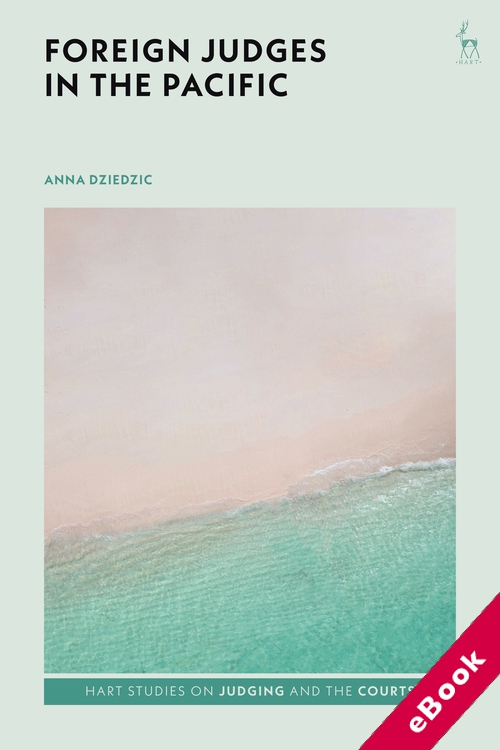We are now closed for the Christmas and New Year period, returning on Monday 5th January 2026. Orders placed during this time will be processed upon our return on 5th January.

The device(s) you use to access the eBook content must be authorized with an Adobe ID before you download the product otherwise it will fail to register correctly.
For further information see https://www.wildy.com/ebook-formats
Once the order is confirmed an automated e-mail will be sent to you to allow you to download the eBook.
All eBooks are supplied firm sale and cannot be returned. If you believe there is a fault with your eBook then contact us on ebooks@wildy.com and we will help in resolving the issue. This does not affect your statutory rights.
This book explores the use of foreign judges on courts of constitutional jurisdiction in 9 Pacific states: Fiji, Kiribati, Nauru, Papua New Guinea, Samoa, Solomon Islands, Tonga, Tuvalu and Vanuatu.
We often assume that the judges sitting on domestic courts will be citizens. However across the island states of the Pacific, over three-quarters of all judges are foreign judges who regularly hear cases of constitutional, legal and social importance. This has implications for constitutional adjudication, judicial independence and the representative qualities of judges and judiciaries.
Drawing together detailed empirical research, legal analysis and constitutional theory, it traces how foreign judges bring different dimensions of knowledge to bear on adjudication, face distinctive burdens on their independence, and hold only an attenuated connection to the state and its people. It shows how foreign judges have come to be understood as representatives of a transnational profession, with its own transferrable judicial skills and values.
Foreign Judges in the Pacific sheds light on the widespread but often unarticulated assumptions about the significance of nationality to the functions and qualities of constitutional judges. It shows how the nationality of judges matters, not only for the legitimacy and effectiveness of the Pacific courts that use foreign judges, but for legal and theoretical scholarship on courts and judging.